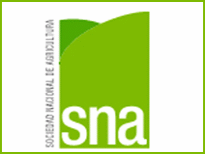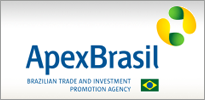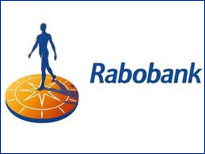Venezuela: Venezuela clamps down on 'currency tourism' with random checks at airports
2013/10/24

The new checks, launched this month, have contributed to infuriating, hours-long queues at the Simon Bolivar international airport, which serves Caracas, Venezuela's capital.
So-called “currency tourism” has become a major problem for President Nicolas Maduro's populist government as Venezuelans make profits using a play on the South American country's tightly regulated foreign exchange system.
There are strict limits on the availability of dollars at the official rate of 6.3 bolivars per dollar. But with an airline ticket, an individual can exchange Venezuelan bolivars for up to 3,000 dollars at that rate. A lot of of those greenbacks are diverted for sale on the black market, where each dollar can fetch about seven times the official rate.
The \'dollar-scarce\' Venezuelan government is trying to clamp down on what it calls “currency tourism” with random checks of passengers leaving the country. The officials at the country\'s major airports are not guards or police but bureaucrats at national currency board Cadivi investigating whether travelers documents match their requests for hard-to-get dollars.
The farther away the traveler's destination, the higher the allocation of dollars, meaning there is as well a trade in illegal tickets to fool Cadivi at the same time as dollar requests are made.
“We're very rigorous on the authenticity of tickets,” said Cadivi security manager Rafael Marfisi as a line of travelers hurried to have their details checked in a computerized database.
“A lot of people tell Cadivi they're going to destinations such as Costa Rica, Peru and Ecuador. And again they travel to closer places such as Panama, Aruba or Curacao.”
A trip within the Caribbean entitles a Venezuelan to buy up to 1,000 dollars from the government at the official rate, while Peru warrants the maximum allocation of 3,000.
A decade of currency controls, initial put in place by late leader Hugo Chavez, has largely failed to reduce capital flight and inflation.
Venezuela's economy is beset by shortages of consumer goods, and annual inflation rose to almost 50% last month.
The checks take place next travelers have passed through security and before they reach the airport's passport desks. The operation is a pilot program ordered by Maduro, who has vowed to crack down on currency tourism, which he says is part of an “economic war” being waged against his government.
Staff at the airport who normally search for illicit substances and contraband as well presently have the right to search a traveler's wallet or purse for dollars, or credit cards in the names of friends of relatives.
- Related Articles
-
Netanyahu’s Historic Latin American Tour to Highlight Israeli Tech Sector
2017/09/10 Latin America is “hungry for Israeli technology,” a senior Foreign Ministry official said Tuesday ahead of Prime Minister Benjamin Netanyahu’s historic visit to the region next week. Deputy Director General at the Foreign Ministry’s Latin America and Caribbean Division, Modi Ephraim, said the visit will have historic significance, as it will be the initial by a sitting Israeli prime minister. -
PM Netanyahu leaves on historic visit to Latin America
2017/09/10 Israeli Prime Minister Binyamin Netanyahu will leave on Sunday evening for a working visit to Latin America. During his trip, Netanyahu will visit Argentina, Colombia and Mexico. This will be the initial visit by a sitting Israeli Prime Minister to Latin America. Paraguayan President Horacio Cartes will travel to Buenos Aires to meet Netanyahu. Netanyahu leaves for trip to Argentina, Mexico, and Columbia, then meets world leaders at UN General Assembly in New York. Accompanying Netanyahu is a delegation of Israeli businesspeople from the fields of agriculture, water, communications and energy. Members of the delegation will hold commercial meetings with their local counterparts. Eonomic events will as well be held in Argentina and Mexico, led by Netanyahu and the Argentine and Mexican heads of national. -
UNWTO: International tourism – strongest half-year results since 2010
2017/09/09 Destinations worldwide welcomed 598 million international tourists in the initial six months of 2017, some 36 million additional than in the same period of 2016. At 6%, increase was well above the trend of recent years, making the current January-June period the strongest half-year since 2010. Visitor numbers reported by destinations around the world reflect strong request for international travel in the initial half of 2017, according to the new UNWTO World Tourism Barometer. Worldwide, international tourist arrivals (overnight visitors) increased by 6% compared to the same six-month period last year, well above the sustained and consistent trend of 4% or higher increase since 2010. This represents the strongest half-year in seven years. -
Venezuelan vote data casts doubt on turnout at Sunday poll
2017/08/03 Only 3.7 million people had voted by 5.30 p.m. in Venezuela's controversial Constitutional Assembly election on Sunday, according to internal electoral council data reviewed by Reuters, casting doubt on the 8.1 million people authorities said had voted that day. The election of the legislative super-body has been decried by critics as illegitimate and designed to give the unpopular government of President Nicolas Maduro powers to rewrite the constitution and sideline the opposition-led congress. -
Venezuelan election turnout figures manipulated by one million votes
2017/08/03 Turnout figures in Venezuela's Constitutional Assembly election were manipulated up by least 1 million votes, Smartmatic, a company which has worked with Venezuela since 2004 on its voting system, said on Wednesday. "We know, without any doubt, that the turnout of the recent election for a National Constituent Assembly was manipulated," Smartmatic CEO Antonio Mugica said at a news briefing in London.
-
- Venezuela News
-
- ISRAEL: Netanyahu’s Historic Latin American Tour to Highlight Israeli Tech Sector
- ISRAEL: PM Netanyahu leaves on historic visit to Latin America
- AFGHANISTAN: UNWTO: International tourism – strongest half-year results since 2010
- VENEZUELA: Venezuelan vote data casts doubt on turnout at Sunday poll
- VENEZUELA: Venezuelan election turnout figures manipulated by one million votes
- VENEZUELA: Venezuela jails opposition leaders in new crackdown on opponents
- Trending Articles
-
- CHINA: China welcomes Guinea to take part in Belt and Road Initiative
- UNITED STATES: Spotify, Hulu target students with discounted bundle
- UGANDA: Ugandan Govt Starts Verifying International Academy Teachers
- CAMEROON: Poor End of Year Results for Cameroon Students
- JAPAN: How Honda lost its mojo - and the mission to get it back
- AUSTRALIA: Queensland Bauxite Gains State Approval of Mineral Development Work Program











